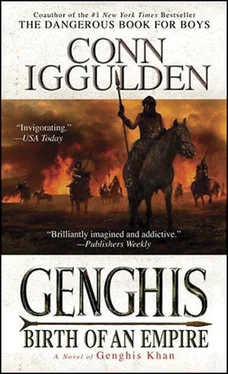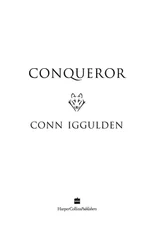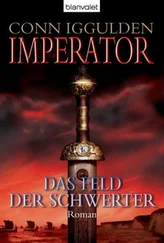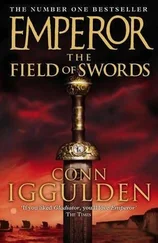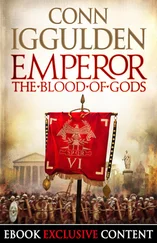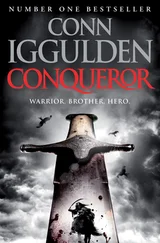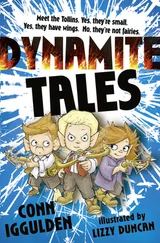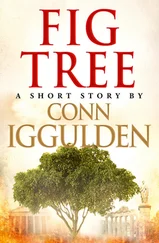Wen Chao nodded slowly. “Then come to me, and live, knowing that your life was mine to take.”
Yuan crossed the distance to the door and stepped inside. Togrul watched in growing panic.
“When do we cross over?” his wife asked.
Togrul turned to her and when she saw the terrible fear in his expression, her face crumpled. When the Chin ambassador spoke again, it was in the language of the tribes. He hoped it would be the last time the foul sounds crossed his lips.
“I am sorry,” he said, turning away and passing through the door. It closed behind him.
“What is this?” Togrul shouted desperately. “Answer me! What is happening?” He froze at a movement on the high walls of the fort. A line of men stood there and, to Togrul’s horror, he saw they were bending bows pointing down at him.
“No! I was promised!” Togrul roared.
Arrows spat through the air, hammering into them even as they turned in terror. Togrul fell to his knees with his arms outstretched, a dozen shafts in his flesh. His daughters screamed, the sounds cut off in thumping blows that hurt Togrul as much as his own agony. For a moment, he cursed the men who stole amongst the tribes as allies, ruling them with gold and promises. The thin grass under him was the dust of Mongol lands, filling his lungs and choking him. The anger faded and the morning was quiet once more.
The greatest joy a man can know is to conquer his enemies and drive them before him. To ride their horses and take away their possessions, to see the faces of those who were dear to them bedewed with tears, and to clasp their wives and daughters in his arms.
– Genghis Khan
The events of his youth that went to create Genghis Khan make extraordinary reading. Very few contemporary records survive and even the most famous of them, The Secret History of the Mongols, was almost lost. The version in his own language commissioned by Genghis did not survive the centuries. Fortunately, a version was rendered phonetically in Chinese, and it is from that writing that we have most of our knowledge of Temujin of the Borjigin- the Blue Wolves. A translation into English by Arthur Waley became my chief source for this work.
Though the exact meaning of the name is disputed, Temujin-Uge was a Tartar killed by Yesugei, who then named his son after the warrior he had defeated. The name has similarities to the Mongolian word for “iron,” and that is generally accepted as its meaning, though it could just be coincidence. Temujin was born holding a clot of blood in his hand, which would have frightened those who looked for such omens.
Temujin was tall for a Mongol, with “cat’s eyes.” Even amongst a hardy people, he was noted for his ability to endure heat and cold and was indifferent to wounds. He had complete mastery of his own body in terms of endurance. As a people, the Mongols have excellent teeth and eyesight, black hair, and reddish skin and believe themselves to be related to the Native American tribes who crossed the Bering Strait while it was frozen and so entered Alaska around fifteen thousand years ago. The similarities between the peoples are startling.
In modern Mongolia, the majority of the population still hunt with a bow or rifle, herd sheep and goats, and revere ponies. They practice shamanism, and any high place will be marked with lengths of blue cloth to honor the sky father. “Sky burial,” that is, laying out bodies to be torn apart by wild birds in high places, is as I have described it.
The young Temujin was taken to his mother’s old tribe, the Olkhun’ut, to find him a wife, though his mother, Hoelun, was taken in the other way of finding a woman- by Yesugei and his brothers kidnapping her from her husband. Yesugei was almost certainly poisoned by his Tartar enemies, though exact details are sketchy.
With his father gone, the tribe chose a new khan and abandoned Hoelun and seven children, down to Temulun, a baby girl. I have not included a half brother, Belgutei, in this story, as he did not play a major part and there were too many similar names already. In the same way, I have changed names where I felt the original was too long or too complex. “Eeluk” is far simpler than “Tarkhutai-kiriltukh.” Mongolian is not an easy language to pronounce, though it is worth mentioning that they have no “k” sound, so that “Khan” would be said as “Haan.” Kublai Khan, the grandson of Genghis, would have been pronounced as “Hoop-lie Haan.” It is true that “Genghis” is perhaps better rendered as “Chinggis,” but “Genghis” is how I learned it first and the one that resonates for me.
Hoelun and her children were not expected to survive and it is a testament to that extraordinary woman that the first winter did not kill her children. We do not know exactly how they survived starvation and temperature plunging as low as -20°, but the death of Bekter shows how close to the ragged edge they were during that period. That said, my guide in Mongolia slept in his deel in very low temperatures, so that his hair had frozen to the ground on waking. They are a hardy people and, to this day, practice the three sports of wrestling, archery, and horse-riding to the exclusion of everything else.
Temujin killed Bekter much as I have described it, though it was Khasar, not Kachiun, who fired the second shot. After Bekter stole food, both boys ambushed him with bows. To understand this act, I think it must first be necessary to see your family starve. Mongolia is an unforgiving land. The boy Temujin was never cruel, and there is no record of him ever taking pleasure from the destruction of his enemies. He was capable, however, of utter ruthlessness.
When the tribe sent men back to see what had become of the family they had abandoned, they met fierce resistance and arrow fire from the brothers. After a chase, Temujin hid from them deep in a thicket for nine days without food before starvation eventually forced him out. He was captured, but escaped and hid in a river. The bank of blue ice I described is not in The Secret History, though I saw such a thing on my travels in Mongolia. I changed the name of Sorkhansira to Basan for the man who saw him in the water and did not give him away. It was Sorkhansira who hid Temujin in his own ger. When the search failed, Sorkhansira gave him a licorice-colored mare with a white mouth, food, milk, and a bow with two arrows before sending him back to his family.
Temujin’s wife, Borte, was stolen by the Merkit tribe rather than the Tartars as I have it. He was wounded in the attack. She was missing for some months rather than days. As a result, the paternity of the first son, Jochi, was never absolutely certain, and Temujin never fully accepted the boy. In fact, it was because his second son, Chagatai, refused to accept Jochi as their father’s successor that later Genghis named his third son, Ogedai, as heir.
Cannibalism in the sense of eating the heart of an enemy was rare, but not unheard of amongst the tribes of Mongolia. Indeed, the best part of the marmot, the shoulder, was known as “human meat.” In this too there is a link to the practices and beliefs of Native American tribes.
Togrul of the Kerait was indeed promised a kingdom in northern China. Though at first he was a mentor to the young raider, he came to fear Temujin’s sudden rise to power and failed in an attempt to have him killed, breaking the cardinal rule of the tribes that a khan must be successful. Togrul was forced into banishment and killed by the Naimans, apparently before they recognized him.
To be betrayed by those he trusted seems to have ignited a spark of vengeance in Temujin, a desire for power that never left him. His childhood experiences created the man he would become, who would not bend or allow fear or weakness in any form. He cared nothing for possessions or wealth, only that his enemies fall.
Читать дальше
